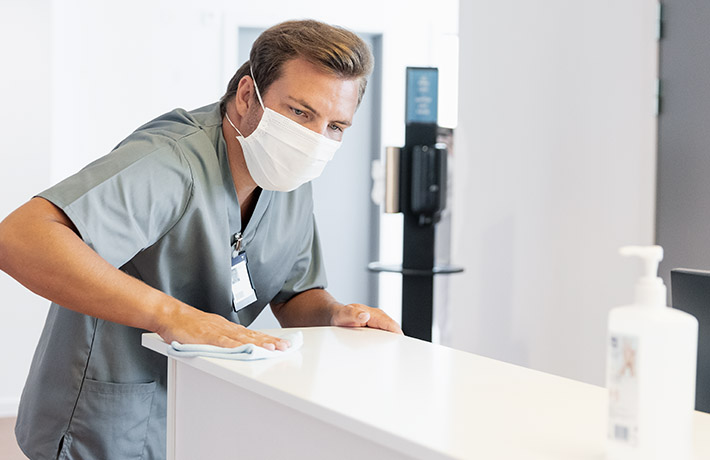Hygiene and health issues high on the public agenda
Viruses and multi-resistant microbial strains put pressure on policy makers to act to protect people. The COVID-19 pandemic has further highlighted how the action – and inaction – of policy makers to protect their populations is scrutinized by their electorate.
The Essity survey highlighted what people think are the best preventive measures governments can take to improve hygiene and health in a post-COVID world. In countries with a general high level of access to water and sanitation, over half of the respondents answered either to increase funding for the healthcare sector or raising the global standards on hygiene and health.

Collaboration and innovation made development of face masks possible
At the beginning of the COVID-19 pandemic, Essity saw a growing need to keep its employees and their families around the world safe from infection. A speedy innovation process switched factories that normally produce personal hygiene products to produce face mask.
“The key priority for us was to keep our people safe while keeping our manufacturing running to be able to continue supply essential hygiene and health products to people around the globe. So, in developing the masks for internal use, we put together resources from different functions to figure out how to make them from existing assets in the shortest possible time. We worked as one team delivering something that in normal conditions would have been considered impossible. We also managed fast ways to distribute the masks in the most affected locations at the time, like Spain and Italy.” Donato Giorgio, President Global Manufacturing at Essity, recalls.
Thanks to many fast and bold decisions from top management, paired with the commitment of employees to work in new ways and around the clock, Essity managed to develop face masks that were approved within weeks. The internal need was covered for the time being.
Shortly after, the Swedish Government made a request to the national industry for help with providing protective equipment such as face masks at a time when Swedish healthcare and elderly care was experiencing a face mask shortage.
“All of us at Essity are part of a community, and therefore, it was natural that we wanted to help if we could. Through a clear and open dialogue with the authorities on the need and requirements we could, together with RISE, a Swedish research institute, ensure that our face masks met the specific requirements for the healthcare sector,” says Giorgio. “Within weeks, we were able to respond to the request. We donate one million face masks to the healthcare sector on top of the two million that were procured.”
After the start of the pandemic during spring 2020, the production of face masks was scaled up with investments in new machines and processes in Europe and Latin America. Thanks to an extremely rapid adaption and development, Essity can now provide face masks to millions of people.

A daughter visiting her mother in the nursing home U.G.R Onlus during the Covid-19 emergency, Lombardy, Italy.